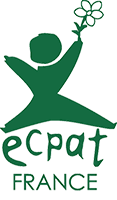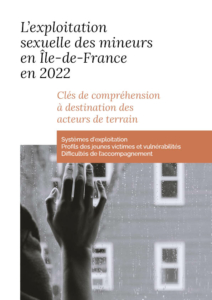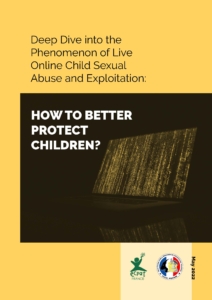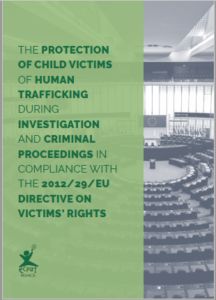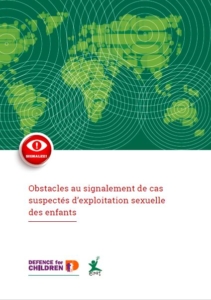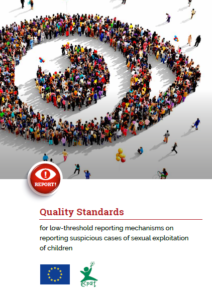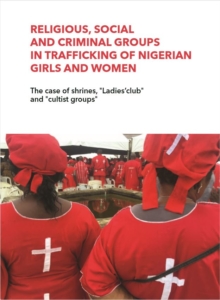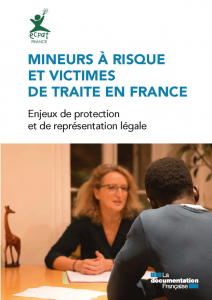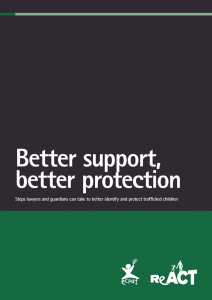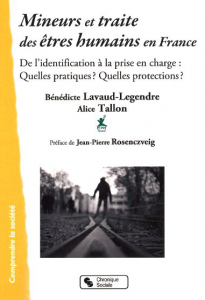March 2023 – Prostitution des mineurs en Île-de-France en 2022 : Clés de compréhension à destination des acteurs de terrain
Face à l’augmentation des cas de prostitution de mineurs en Ile de France constatée par les acteurs de terrain et le manque d’outils pour y répondre, ECPAT France a mandaté le chercheur Guillaume Coron pour apporter des clés de compréhension à ces acteurs de l’intervention.
Cette étude a pour objectifs de :
- Permettre une meilleure appréhension du phénomène d’exploitation sexuelle des mineurs sur le territoire francilien ;
- Soutenir l’intervention des acteurs (publics, professionnels, société civile) en leur proposant des clés de compréhension du phénomène et de ses évolutions.
- Formuler des recommandations permettant de renforcer la prévention, l’orientation et la protection des mineurs victimes d’exploitation sexuelle.
Les recommandations de cette étude ont été partagées et enrichies avec des acteurs de terrain à Paris en avril 2023 et a donné lieu à la conception de modules de formation, adaptés aux besoins des intervenants, prévus pour une diffusion fin 2023 début 2024.
June 2022 – Deep Dive into the Phenomenon of Live Online Child Sexual Abuse and Exploitation: How to Better Protect Children?
This study was born out of a discussion between the OCRVP, ECPAT International and ECPAT France in Singapore in June 2019. The phenomenon of live online child sexual abuse was already well known, but major disparities in its approach depending on the countries and regions have been identified. The need for a study that should present the phenomenon, analyze existing legislation, identify good practices and formulate recommendations was obvious.
The study is based on national, European and international legal frameworks, court decisions, as well as recent research and contributions. It is also based on interviews with multidisciplinary professionals and contributions from police and association professionals, responding to written questionnaires. The methodological framework and interview protocols were defined upstream and sent to all contributors.
NOVEMBER 2021 – THE PROTECTION OF CHILD VICTIMS OF HUMAN TRAFFICKING DURING INVESTIGATION AND CRIMINAL PROCEEDINGS IN COMPLIANCE WITH THE 2012/29/EU DIRECTIVE ON VICTIMS’ RIGHTS
The CAPISCE project research as analyzed 4 european countries’ (Belgium, France, Italy, Netherlands) practices and laws to study the transposition and the implementation of the Chapter 4 of the Victims’ Right Directive 2012/29/EU dedicated to the protection of victims and recognition of victims with specific protection needs.
This publication has been produced with the assistance of the European Union.
FEBRUARY 2020 – RELUCTANCE TO REPORT SEXUAL EXPLOITATION OF CHILDREN RELATED TO TRAVEL AND TOURISM (FR)
FEBRUARY 2020 – QUALITY STANDARDS FOR LOW-THRESHOLD REPORTING MECHANISMS ON REPORTING SUSPICIOUS CASES OF SEXUAL EXPLOITATION OF CHILDREN
Children in all countries of the world are exposed to the risk of human trafficking, sexual exploitation and online dangers such as grooming, sextortion, and the spread of abusive representations. The travel and tourism sector and the number of travellers are growing steadily. In several destinations, an uncontrolled development of tourism with no consideration for human rights puts children at higher risk. This makes it easier for travelling child sex offenders to locate new victims. Furthermore, in many places there are inadequate legal frameworks, cases of sexual exploitation of children remain unprosecuted and corruption has continued to persist. In order to effectively hold perpetrators criminally responsible, knowledge and evidence must be of good quality, in order to make decisions and initiate measures.
This publication has been produced with the assistance of the European Union.
MARCH 2019 – RELIGIOUS, SOCIAL AND CRIMINAL GROUPS IN TRAFFICKING OF NIGERIAN GIRLS AND WOMEN
In an innovative manner, Packing research addresses human trafficking from Nigeria to Europe, beyond the perspective of the ‘victim/madam’ duo as classically analysed. It postulates the involvement of several social groups whose activity does not originate in the practice of human trafficking, neither is reduced to it. The offense of trafficking is therefore perceived as based on an organization that, beyond the criminal activity itself, has a highly structured and legitimized social, community and religious base.
More precisely, this research describes the operation – activities and development – of each of religious groups (such as the neo-traditional Temples in Edo State, Nigeria), women’s groups (such as the Ladies’ clubs) and cultist groups (including Black Axe (Aye) and Supreme Eiye Confraternity) in Nigeria and France and then identifies their role and level of involvement in human trafficking.
This publication has been produced with the assistance of the European Union.
JANUARY 2017 – MINEURS À RISQUE ET VICTIMES DE TRAITE EN France
NOVEMBER 2016 – REACT EUROPEAN REPORT
This report provides a snapshot of the manner in which children who may have been trafficked into and within five EU states were or were not identified and protected in and up to 2016. It should be read in the context of other key
research1 in this area, which has identified many of the same issues and shortcomings.
For the purposes of this report, a trafficked child may be a foreign national, a national of an EEA state or a national of Belgium, France, Germany, the
Netherlands or the United Kingdom. This last group of trafficked children share many characteristics of the first two groups, but, as they do not require immigration status, they are unlikely to have their age disputed and may gain access to suitable care and accommodation more easily.
